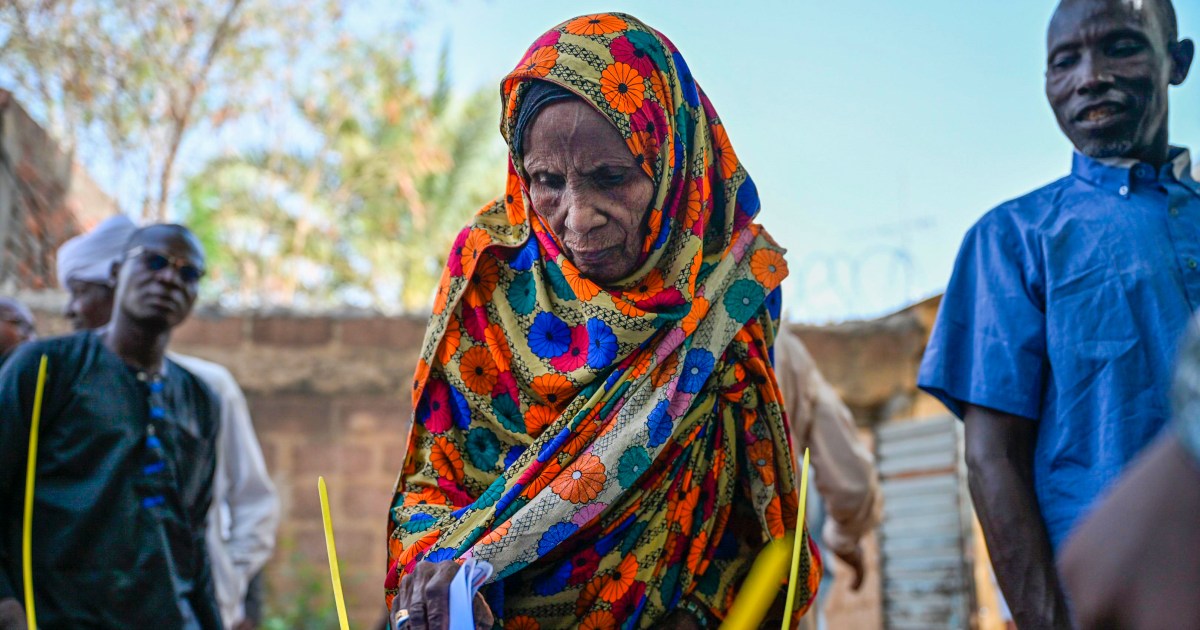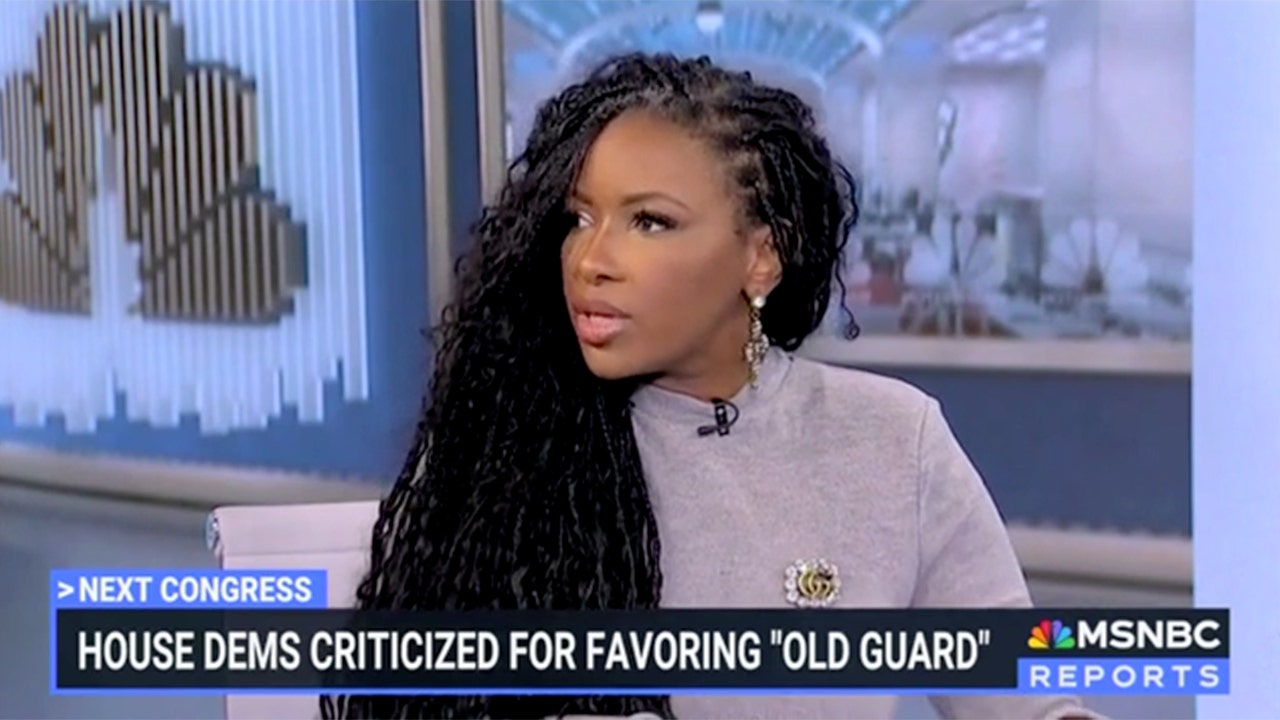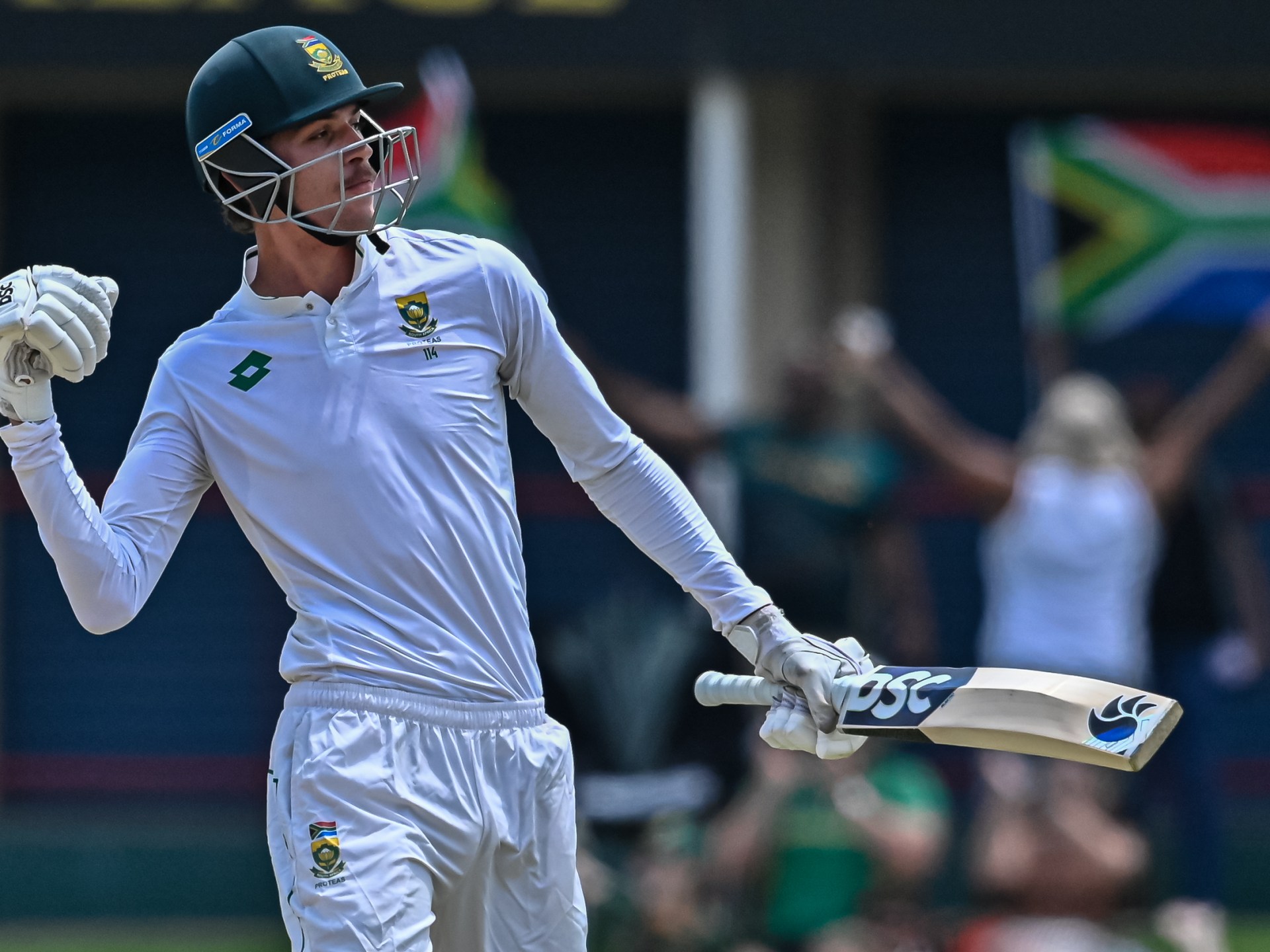Chadians cast their votes in parliamentary, regional and municipal elections for the first time in more than a decade, in a continuation of the efforts of the former military-turned-civilian government to put the Central African country on the democratic path. But opposition party members are skeptical.
Officials in N’Djamena say Sunday’s vote will officially end the three-year “transition period” that followed the 2021 death of leader Idriss Déby Itno and the forced seizure of power by his son, Mohamed Idriss Déby, who was confirmed as the country’s president after elections in May.
However, many opposition parties are boycotting the elections, calling them a “farce” and accusing the National Salvation Movement government of trying to legitimize what they call a political dynasty.
Chad, one of Africa’s poorest countries, is the first in a series of countries that witnessed coups in the Sahel region to hold elections as promised, even if the elections are severely delayed. The country is no stranger to coups or repressive governments, as it has been ruled by the Déby family since 1991.
Sunday’s vote comes amid a barrage of security challenges: Sudan’s war raging along the eastern border; The armed group Boko Haram attacks security sites around Lake Chad. N’Djamena recently violated a military agreement with France, a former colonizer and staunch ally.
Human rights groups say the elections are unlikely to be fair without the full participation of the opposition.
“It will be difficult to hold credible elections without inclusion,” Issa Sanusi, Amnesty International’s director in neighboring Nigeria, told Al Jazeera. “The boycott of the elections by some shows that there must be a review of the process and system to ensure equal opportunities to accommodate all Chadians.”
Here’s what you need to know about the parliamentary elections and why the country’s emerging steps toward democracy are so controversial:
How will voters elect?
- About 8.3 million registered voters out of the country’s population of 18 million will vote to choose legislators in the country’s 188-seat parliament. Parties need 95 seats to obtain a majority.
- More than 100 political parties presented about 1,100 candidates for the parliamentary elections. Winners are elected by majority or more than half, depending on the size of the constituency.
- Voters will also choose regional and local governments in 22 regions and the capital, N’Djamena.
- The Transformers Party, as well as dozens of other opposition parties, are boycotting the elections, arguing that the vote will not be free or fair.
Why haven’t parliamentary elections been held for more than a decade?
Parliamentary elections were last held in 2011. Although the term of lawmakers was supposed to end in 2015, the government postponed the elections indefinitely, claiming there was no money to organize the elections.
Although the landlocked country is an oil producer, it ranks fourth from the bottom on the United Nations Human Development Index due to years of stagnant economic activity and extreme weather conditions.
Despite opposition members calling for elections to be held quickly, former President Deby continued to postpone them. In 2019, the newly established Independent National Electoral Commission (CENI) finally promised to hold elections in 2020. However, the COVID-19 pandemic disrupted those plans.
After the death of his father at the hands of rebels in May 2021, General Mohamed Idriss Deby, 40, seized power, despite loud calls for elections from opposition parties. The army dissolved Parliament and formed a transitional military council for one year headed by Déby. In October 2022, the leader disappointed many Chadians when he extended the transitional period to 2024. Thousands, especially young people, took to the streets in protest, but security forces opened fire on them, killing more than 100 people.
Najah Masra, the young leader of the opposition Transformers Party, was at the forefront of the protests. Massara fled to the United States after the killings.
Was there another election?
Yes, the authorities held a successful referendum in December 2023, which supported a new constitution and, in effect, new elections.
In May this year, Déby won a landslide victory in the controversial presidential elections, amid allegations that his party rigged votes with the help of the National Electoral Management Agency.
Critics also accused Deby of killing opposition candidates before the elections. Chadian security forces killed Yaya Dilou, Déby’s cousin and a prominent opposition member of the Socialist Party Without Borders, in February. He was widely viewed as the president’s biggest rival at the time.
Officials claimed that Dilo led a deadly attack on the headquarters of the country’s intelligence agency on February 28, but Dilo denied the allegations. Dilo was killed in a shootout the next day along with several other members of the Palestinian security forces. Many members remain detained in the notorious Kouro Toro high-security prison, according to Amnesty International. Organizations such as Human Rights Watch documented in 2022 how prison officials tortured and killed protesters detained at the facility.
Déby received 61.3 percent of the votes, angering opposition groups who claimed the elections were rigged. International human rights groups, such as the International Federation for Human Rights, said the presidential election “was not credible, free or democratic.”
The president was ahead by a large margin over his biggest competitor, the Transformers Party candidate Masra, who came in second place with 18.5 percent of the votes. Massara returned to the country in January this year after a peace agreement was reached and was appointed prime minister in what many saw as Déby’s attempt to win the support of opposition members. But tensions returned when the two faced each other in the elections. Massara resigned as prime minister and has since returned to lead the opposition.
What parties are running in these elections?
Movement for National Salvation (MPS): The Somali Parliament Party is headed by agricultural expert and former Prime Minister Harun Kabadi, who currently heads the Transitional Council. It was founded by former President Deby Itno and current President Denny is “president emeritus”. The party has controlled parliament since 1996. Before the formation of the transitional council in 2021, the party was a member of a coalition government with the Rally for Democracy and Progress (RDP) and the National Rally for Democracy and Progress (RNDP) and controlled 134 parliaments. Seats.
National Union for Democracy and Renewal (UNDR): The coalition led by politician Salih Kibzabu was one of the main opposition coalitions against the rule of former President Deby Itno. The current president appointed Kibzabu as prime minister from 2022 to 2024. The party controls 10 seats until 2021.
National Rally of Chadian Democrats (RNDT): Once allied in a ruling coalition with the Socialist Parliament Party, the National Democratic Rally is largely seen as a “semi-opposition” group. It is led by former Prime Minister Albert Bahime Badaki (2021-2022). Badaki competed in the presidential elections that took place last May and received 16.9 percent of the votes. The National Democratic Rally will control eight seats in Parliament until 2021.
Why are some opposition parties boycotting parliamentary elections?
Some opposition parties, including Mohafalat Al Masra, the Group for Cooperation of Political Actors (GCAP), and more than 10 others, did not participate in the vote in protest, and distributed leaflets to people encouraging them not to vote.
The parties accuse Deby’s government of repression and tyranny and say that opposition members have already “lost in advance.”
Massara, who came in second in the presidential elections, told Agence France-Presse that “participation in the legislative elections in the current circumstances is participation in legislative apartheid.”
Some parties, such as the Chadian Democratic Party, claimed to prevent members of parliament from campaigning by placing roadblocks in their strongholds.
The authorities rejected these claims. Infrastructure Minister Aziz Mohamed Saleh told reporters that the elections will enable members of the ruling parliament and President Deby to obtain the necessary majority “to translate his political program into reality.”
Why are Chadian journalists protesting?
Meanwhile, online journalists this week criticized the ban imposed on December 4 that prevents online newspapers from broadcasting audiovisual content related to the elections, and in general. The authorities also suspended interactive broadcasts involving telephone calls.
The High Authority for Media and Audiovisuals (HAMA), which issued the restrictions, claims that online publications are republishing videos without the permission of content producers, in violation of content laws. In the past, Hama accused online journalists of publishing “unverifiable” information about President Deby.
The Supreme Court’s decision on December 20 ordered the ban on the content to be lifted immediately. However, Hama has not yet implemented the sentence. Speaking to state television on Tuesday, HAMA President Abderrahmane Baraka said the order was in line with Chadian law on content sharing, but did not say whether the agency would respect the ruling.
About 40 media publications went on strike. On Tuesday, several journalists took to the streets in N’Djamena to protest the decision, accusing the Hama movement and the parliamentary government of trying to silence online media ahead of the elections. They said the restrictions also prevent them from publishing locally created audiovisual content.
Rights groups criticized the ban. “As a regulatory body, HAMA’s mission is to regulate the media space, not to restrict it pre-emptively,” Sadipo Marong, Reporters Without Borders’ sub-Saharan Africa director, said in a statement.
“The difference is subtle, but essential to guarantee freedom of the press in Chad. If distributing content without producer approval is prohibited, RSF asks HAMA to amend its decision not to prevent online media outlets from broadcasting and producing their own audiovisual content.
What’s next?
Analysts say the Somali People’s Party looks set to win a majority in parliament, essentially consolidating the party’s decades-long dominance, as well as strengthening the Deby family’s grip on power.
At huge rallies in N’Djamena over the weekend, PSOE politicians distributed hats, key chains and other memorabilia painted in the party’s blue and yellow colors to thousands of supporters.
But rights groups are calling on the authorities to ensure an inclusive vote. “The authorities in Chad have a duty not only to ensure that elections are free and fair, but also to ensure that they are inclusive,” said Amnesty International’s Senussi.
Meanwhile, opposition boycotts pledged to independently monitor the vote and submit evidence of violations to the Tanzania-based African Court, which has jurisdiction in AU member states, in order to persuade the court to annul the vote.




